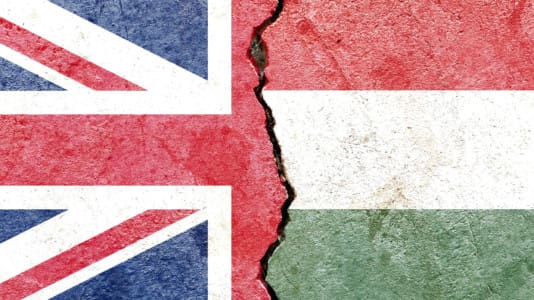In a recent interview on Hungarian radio, Deputy Director at ADF International Robert Clarke spoke about the growing censorship in Europe that is particularly harsh on people of Christian faith. ADF is a Vienna based international advocacy group that has in recent years been involved in the defense of a number of Christian victims of radical leftist or Islamist persecution worldwide. In the Hungarian public broadcaster Radio Kossuth’s Sunday program, Clarke spoke about their current, most high-profile case, which involves defending Finnish politician and former Minister of Interior Paivi Rasanen.
As Remix News reported earlier, the Finnish politician is facing charges of hate speech, and could receive a two-year prison sentence if found guilty on the basis that she spoke out against LGBTQ ideology using Bible quotes. The case against her has been brought by Finnish Prosecutor General Raija Toiviainen against the recommendation of the police who questioned Rasanen for four hours about her statements, and found no case for prosecution.
[pp id=27220]
Toiviainen has also brought a case against the Lutheran Bishop Juhana Pohjola for republishing Rasanen’s pamphlet, in which she contrasts Biblical teaching with LGBTQ ideology. She has also brought a case against Finnish MP Juha Mäenpää for comparing Muslim migrants to “invasive species,” but parliament had voted against lifting Juha Mäenpää’s immunity on the grounds of protecting free speech.
ADF’s Robert Clarke thinks that the complainants in Rasanen’s case described Apostle Paul’s thoughts as offensive and unacceptable, thus at the end of the lawsuit, the court would actually decide whether the Bible could be censored and whether religious freedom still existed.
To the reporter’s question as how can a direct quote from the Bible be actually prosecuted as hate-speech, Clarke replied by saying that is one of the most shocking examples of censorship in Europe, which is becoming more visible and growing. It involves a woman who is a public official, a former minister, a member of the Finnish parliament, and also a mother and grandmother, and who had merely expressed her personal opinion on Twitter.
[pp id=7250]
She criticized the leadership of her own church for supporting and joining the Helsinki Pride parade. It was this opinion that the attorney general had seized upon in order to accuse her of racial agitation. This is a serious crime, a hate crime that led to a trial against Rasanen and two other defendants who supported the former minister’s words. Clarke pointed out that the politician had merely expressed her religious beliefs while hurting no one, using no offensive language, but merely sharing her convictions within the community space, contributing to the public debate about these issues.
As a result, she now finds himself a defendant in a crime. And this matter is not just about one particular politician, but the intimidation is about sending a message to others as well. Clarke says he believes this is about teaching people that it is better to exercise self-censorship rather than to speak out on controversial matters. If a minister can be accused, they will do the same with anyone else, he said. The fact that the case represents both a grave threat to religious freedom and freedom of speech were significant motivating factors behind why ADF decided to support it.
[pp id=7645]
In the interview, the ADF deputy director also related his surprise that Finland’s attorney general has taken the case to prosecution. In his view, there has been a recognizable pattern in proceedings involving so-called hate speech cases: first an investigation is initiated against the person concerned, the police interrogate them, which then attracts serious media attention. Then, the person concerned often ends up losing their jobs and suffering broad public criticism.
Then, silently, after a few months, the prosecutor or the police announce that there is no indictment in the case. In such a scenario, the proceedings are the punishment itself, as it does not really matter to those who want to silence others whether there will is an indictment in the end. They achieve their goal anyway, and in some cases the police procedure itself destroys a person’s life along with his or her reputation.
Activists then cite the case as an example, saying that whoever else makes such a statement will also be punished, effectively becoming a highly effective tool to silence anyone with dissenting opinions with minimal effort. While such cases very rarely reach a verdict or a trial, this is not the case involving the Finnish politician Rasanen, says Clarke. Contrary to the expectations of many, the Finnish attorney general took the matter further, which now represents a real threat to freedom of expression in Finland and Europe.






